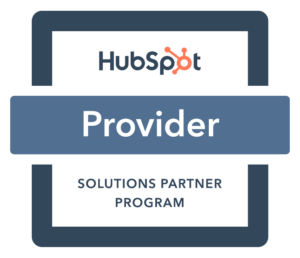All too often, when a company uses a tool, such as Salesforce, the education and responsibility for administrating the tool is kept with to the IT people in the company. While the front-line super-users, the functional administration staff, tend to be overlooked as either not needing training or are restricted from doing things.
Yet for most Sales teams the Sales Administrator is often a key player on the team. Sometimes this role is marginalized as to its importance because they don’t directly impact quota or margin. Any really good Sales Manager knows that they couldn’t achieve their results without their Admins. The really good ones would tell you honestly that the Sales Admin is a key role on the team.
As someone who has managed business process improvements and standardized reporting projects, I’ve been in the position to handover the day-to-day operations of technical solutions to administrative and support staff. I can tell you that most are more capable of handling the administration of their tools then IT management gives them credit for. I’ve also seen what can happen when this responsibility is not handed over to the functional team personal.
It can leave a sales or service team reliant on an IT team to make any change, manage their data or even to create a new report template. Not only can this be a costly way of doing things, it can leave the team waiting in line with all the other priorities of the IT team.
Or worse than that, the team Administrator is given admin access yet not educated on what those powers can do, and they end up creating a mess. Leading those IT people to say an “I told you so” and reinforce their need to keep admin control
Or even worse… it lands on the Sales Manager to do admin tasks, when their time is the most valuable (or costly) and these tasks would be better delegated.
So why not invest in getting Sales Admins educated and certified as Salesforce Administrators? I personally feel it is a must-do.
A Sales Admin certified as a Salesforce Administrator doesn’t have to mean that they are then mandated with making customizations on the instance. I believe this is best kept in the realm of improvement projects. There are a lot tasks of a day-to-day operational nature relating to supporting a team using Salesforce, that would be really helpful being kept as a responsibility within the Sales team. As well, an informed Sales Admin who understands both how the team and the system work, is a valuable source when discovering requirements for those larger improvement projects.
True a chunk of the exam requires understanding how to customize an instance, though the full coverage of what you need to learn also includes things that are more operational. There are some key points within the full coverage of the certification requirements that are beneficial to Sales Admins.
Architectural Understanding of Salesforce
Understanding how the pieces of Salesforce work together as Apps, Objects and Business Process rules not only helps someone to understand how Salesforce works, but it also will help the Sales Admin understand how the business operates. And hence, help them do their Sales Admin tasks better. Knowing what data is being tracked, why it’s being tracked and the workflow to get it in there is of value to someone supporting the team.
User Administration
Not only does this cover creating user accounts and license management, it also includes end-user issues with access and managing visibility of data.
A Sales Admin who understands how to assign permission sets and profiles, can handle those real world exceptions that always creep up where someone not fitting the standard security restrictions needs access to some data because of some critical deal they are being pulled into.
Communications
There are a number of ongoing communications tasks that can be performed by Admins, including automated emails, setting up letterheads and managing mailing campaigns. They can also be responsible for some of the specific Salesforce communication feeds like managing chatter feeds, file sharing and other documentation. Having Admin access helps them to do it across the team.
Reports and Dashboards
While Salesforce reporting is really powerful and there are great standard reports, most teams have their unique ongoing requirements for what they want to see in reports to gain insights in how they are doing. Having someone on the team that understands how the objects work together to build a report and is extremely comfortable with customizing a report is invaluable.
Data Management
Speaking of reports… I’ve always loved the expression Garbage-In/Garbage out. Having clean data in your Salesforce instance is crucial to getting the information that you need. Having someone on the team who understands how to handle the tools to do bulk changes, do backups and maybe just be able to change ownership when required is helpful.
End-User Support
With additional tools like the Salesforce1 mobile App and Salesforce for Outlook, staff can decide what works best for themselves individually to access and use Salesforce. Having local knowledge of how to get running with these, or how to enable users to use these can be really beneficial.
And, Finally
Whether or not you wish to delegate any or all of these things to your Sales support staff is a decision unique to each company and team. Salesforce itself is a clean and straightforward tool to use. I believe that an investment in training your Sales Support staff to enable them to do it is of value to any Sales team. Salesforce admin knowledge may also be something that you start to include in requirements for new hires.
